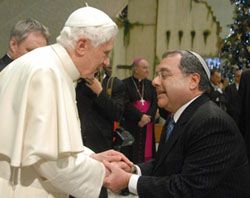
(For the audio version of this blog, please visit: http://brothersinchristcmf.org/wp-content/uploads/2023/02/Mass-Blog-for-the-7th-Sunday-in-Ordinary-Time-2023.mp3)
Sunday’s first reading recalls when Moses received the law upon which all of God’s chosen people would be raised: “Be holy, for I, the LORD, your God, am holy. … You shall love your neighbor as yourself.” (Lv 19:1-2, 17-18)
How could anyone argue with that? Let’s count the ways. There are as many of them as we have religions. Throughout human history we’ve added to and subtracted from God’s words, contributing libraries of theology textbooks to our collective wisdom. In this Sunday’s second reading (1 Cor 3:16-23), Paul summarizes our thought process and describes the purification system between us and God’s word:
“The Lord knows the thoughts of the wise, that they are vain. So let no one boast about human beings … all belong to you, and you to Christ, and Christ to God.”
Adding Christ to that line of communication as God’s Son caused waves of discontent that continue to divide and drown us in cascading versions of truth. Many say Moses was the only human interface between us and God. That debate has been the cause of much pain and suffering throughout the centuries, but the recent passing of Pope Benedict XVI reminds us how important easing that pain was to him. He wanted to play an integral part in the healing process.
It began in earnest when Pope John XXIII, during the Second Vatican Council (1962-65), issued Nostra Aetate (The Declaration on the Relationship of the Church to Non-Christian Religions). This went a long way toward inspiring a new age of dialog.
When Joseph Ratzinger began his papacy in 2005, he addressed the Jewish people directly, saying “With great affection I also greet … you, my brothers and sisters of the Jewish people, to whom we are joined by a great shared spiritual heritage, one rooted in God’s irrevocable promises.”
Then in 2007, in the first volume of a trilogy titled “Jesus of Nazareth,” Benedict quoted extensively from a 1993 book by his friend Rabbi Jacob Neusner. Titled A Rabbi Talks With Jesus, Neusner explains he couldn’t follow Jesus’ invitation to follow him because he felt his teachings were attempts to violate some of the commandments Moses handed down—specifically, about the primacy of family (“If anyone comes to Me and does not hate his father and mother, wife and children, brothers and sisters, yes, and his own life also, he cannot be My disciple.” –Luke 14:26), or continual disrespect for Sabbath observation (Jesus’s working miracles on those days).
Benedict responded, “It would be good for the Christian world to look respectfully at this obedience of Israel, and thus to appreciate better the great commandments of the Decalogue, which Christians have to transfer into the context of God’s universal family, and which Jesus, as the ‘new Moses,’ has given to us. In him we see the fulfillment of the promise made to Moses: ‘The Lord your God will raise up for you a prophet like me from among you, from your brethren (Deut 18:15).’”
Therefore, Benedict teaches, “Jesus does not abolish the Torah, but fulfills it by assigning reason its sphere of responsibility for acting within history. … In the inner structure of the Torah, in its further development under the critique of the prophets, and in Jesus’ message, which takes up both elements, Christianity finds the solid ground that guarantees the dignity of man by rooting it in the dignity of God.”
The dignity of God is perfection, and in Sunday’s gospel passage from Matthew (Mt 5:38-48), Jesus tells us we must rise above humanity’s spin on God’s laws”
“You have heard that it was said, you shall love your neighbor and hate your enemy. But I say to you, love your enemies and pray for those who persecute you, that you may be children of your heavenly Father… For if you love those who love you, what recompense will you have? Do not the tax collectors do the same? And if you greet your brothers only, what is unusual about that? Do not the pagans do the same? So be perfect, just as your heavenly Father is perfect.”
Benedict may not have been perfect, but in devoting his life to befriending those who were once considered Christianity’s enemies, he set an example for rising above our vanity and reaching out to grasp God’s purpose in befriending humanity.
–Tom Andel